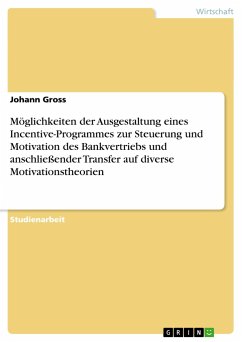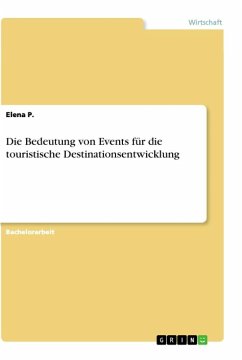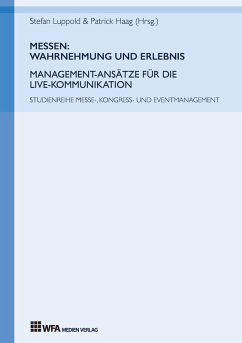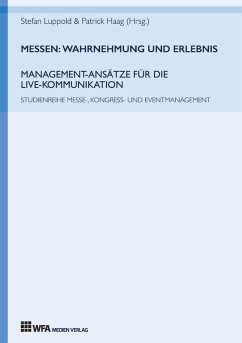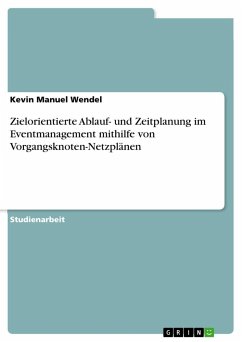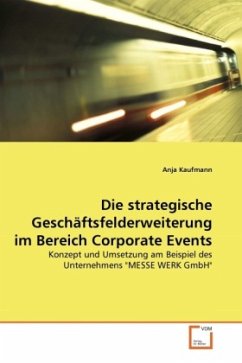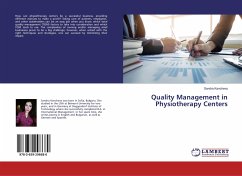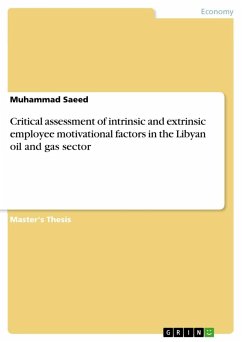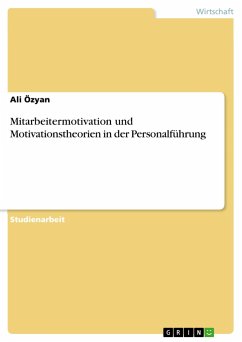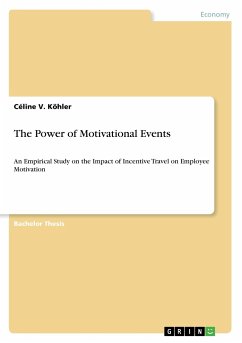
The Power of Motivational Events
An Empirical Study on the Impact of Incentive Travel on Employee Motivation

PAYBACK Punkte
0 °P sammeln!
Bachelor Thesis from the year 2015 in the subject Business economics - Personnel and Organisation, grade: First Class Degree, , course: Eventmanagement, language: English, abstract: Employee motivation has always been a highly researched topic. Employers spend large budgets on employee motivation because a motivated workforce is said to go hand-in-hand with corporate success. Incentive Travel is one form of a motivational tool and reward. More than a normal travel experience, it is considered to be an appropriate motivational event - from the journey itself, to the various activities and excur...
Bachelor Thesis from the year 2015 in the subject Business economics - Personnel and Organisation, grade: First Class Degree, , course: Eventmanagement, language: English, abstract: Employee motivation has always been a highly researched topic. Employers spend large budgets on employee motivation because a motivated workforce is said to go hand-in-hand with corporate success. Incentive Travel is one form of a motivational tool and reward. More than a normal travel experience, it is considered to be an appropriate motivational event - from the journey itself, to the various activities and excursions included employees gain motivation. Different analyses have been made investigating the appraisal of Incentive Travel from the attendees' perspective. However, little research has been made on the employers' point of view and their appraisal of its motivational power. Therefore, the aim of this dissertation is to investigate the motivational power of Incentive Travel on employee performance from the perspective of the employer. This is achieved by an in-depth evaluation of the theory behind Incentive Travel, as well as two motivational theories: 'Expectancy Theory' by Victor Vroom (1964) and 'Equity Theory' by John Adams (1963). To conjoin the theoretical part of this dissertation and to create a basis for primary research, the author has developed the 'Incentive Travel - Motivation Model'. Research for the dissertation was conducted in form of an online survey of 117 CEO and managers who have personnel responsibility, that include Incentive Travel in the remuneration system of their company.




